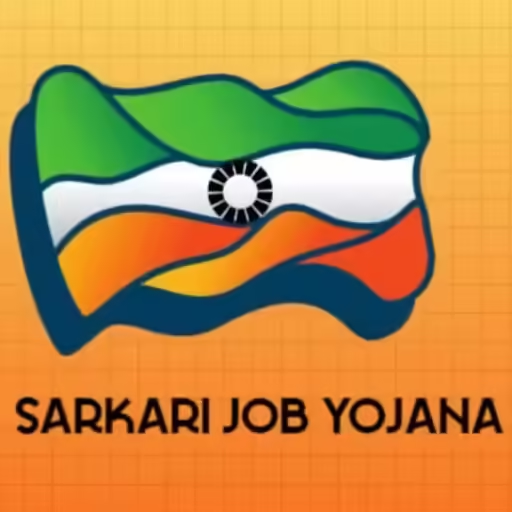
Understanding Group A, B, C, and D in Indian Government Jobs
In India, government jobs are organized into different classifications: Group A, B, C, and D. Each group comes with distinct responsibilities, eligibility criteria, and pay scales, making it essential for aspiring candidates to understand the differences. Here’s a detailed guide on what each group represents and the types of roles you’ll find within them.
What is a Group A ? – The Highest Level of Government Jobs
Overview: Group A jobs are the top-tier positions in the Indian government, generally involving leadership roles, policy-making, and high-level administrative functions. These roles require advanced qualifications, and they come with significant responsibilities.
Positions and Roles:
- Indian Administrative Service (IAS), Indian Police Service (IPS), and Indian Foreign Service (IFS) officers.
- High-ranking officials in ministries, departments, and public sector units.
- Senior roles in the central government such as Directors, Commissioners, and Joint Secretaries.
Eligibility and Qualifications:
- Candidates generally need a Bachelor’s degree for most entry-level roles, although a Master’s or specialized degree is often preferred.
- Selection is typically through competitive exams like the Union Public Service Commission (UPSC) for central services or state Public Service Commissions (PSCs) for state roles.
Pay and Perks:
- Group A positions come with the highest salary packages, starting with Pay Level 10 and above in the 7th Pay Commission structure.
- Additional benefits include housing allowances, medical facilities, official vehicles, and retirement pensions.
Career Growth:
- Group A officers have a clear path for promotion, often advancing to top roles in government departments and ministries over time.
What is a Group B ? – Middle-Level Roles with Management Responsibilities
Overview: Group B roles serve as a bridge between Group A and lower groups. They are typically supervisory positions, responsible for overseeing day-to-day operations, ensuring policy compliance, and implementing instructions from senior officials.
Positions and Roles:
- Superintendents, Section Officers, Inspectors in departments such as Customs, Income Tax, and Central Excise.
- Various roles within Defense Forces, Railways, Public Sector Banks, and State Police Services.
Eligibility and Qualifications:
- Most Group B roles require a Bachelor’s degree, though specific fields may demand additional qualifications.
- Entry into Group B roles can be through exams such as Staff Selection Commission (SSC) Combined Graduate Level (CGL), Banking Exams, or respective PSC exams.
- In some cases, Group B roles may also be filled by promoting experienced Group C employees.
Pay and Perks:
- Group B jobs generally follow Pay Levels 6 to 9 in the 7th Pay Commission structure.
- Benefits may include government housing, medical facilities, and travel allowances, though not as extensive as Group A perks.
Career Growth:
- Opportunities for promotion to Group A exist, often based on performance and years of service.
What is a Group C ? – The Backbone of Government Services
Overview: Group C employees are the operational staff who handle routine work, manage records, assist in administrative tasks, and interact with the public. They are crucial to the smooth functioning of government offices.
Positions and Roles:
- Clerks, Assistants, Stenographers, and Data Entry Operators in various ministries, departments, and public sector units.
- Technicians, multi-tasking staff (MTS), and junior assistants in defense, railways, and other sectors.
Eligibility and Qualifications:
- Group C roles generally require a minimum educational qualification of Class 12 or a Bachelor’s degree, depending on the position.
- Many roles require candidates to pass exams conducted by the SSC, Railway Recruitment Board (RRB), or other government recruitment bodies.
Pay and Perks:
- Group C employees earn salaries under Pay Levels 1 to 5, depending on the role and level of experience.
- Benefits include medical coverage, paid leave, and pension plans after retirement, though they are less extensive than those in higher groups.
Career Growth:
- Promotions are possible, often to higher levels within Group C, with exceptional performance leading to promotion into Group B.
What is a Group D ? – Entry-Level Positions for Support Staff
Overview: Group D jobs consist of the essential support staff in various government departments. These roles are fundamental to the day-to-day upkeep, logistics, and support activities within government establishments.
Positions and Roles:
- Peons, Sweepers, Watchmen, Gardeners, and Drivers in government offices.
- Support staff roles in railways, public hospitals, and other government institutions.
Eligibility and Qualifications:
- Minimum educational requirement is generally a Class 10 pass, with additional qualifications required only for certain roles.
- Recruitment for Group D positions is often conducted by the respective government departments or through exams like SSC MTS for specific posts.
Pay and Perks:
- Group D positions are paid according to the Pay Level 1 and 2 scales.
- Benefits are minimal but include basic medical facilities, paid leave, and pension schemes upon retirement.
Career Growth:
- Group D employees have limited promotional opportunities, although experienced workers can advance to higher levels within Group D or be promoted to Group C roles in some cases.
Conclusion
Government jobs in India provide a stable career path, benefits, and the prestige associated with serving the nation. The classification of these jobs into Groups A, B, C, and D ensures a clear hierarchy and division of responsibilities. While Group A roles offer leadership and policy-making responsibilities, Group B jobs focus on supervisory roles, Group C manages operations, and Group D handles support functions.
Understanding these classifications can help candidates target the roles that best match their qualifications and career aspirations, making the journey toward a government career both focused and rewarding.
Follow the links below to:
| Purpose | Link |
|---|---|
| Explore more opportunities and government schemes | Click Here |
| Find out the latest updates | Click Here |
| Discover the latest government Yojana | Click Here |
